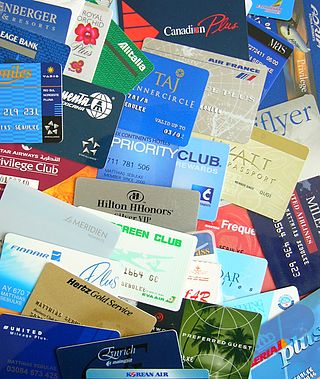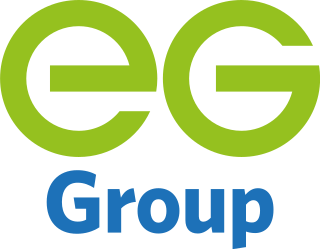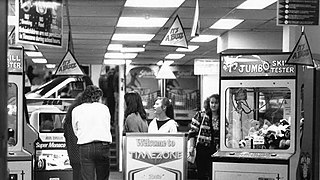Related Research Articles

A loyalty program is a marketing strategy designed to encourage customers to continue to shop at or use the services of a business associated with the program. A loyalty program typically involves the operator of a particular program set up an account for a customer of a business associated with the scheme, and then issue to the customer a loyalty card which may be a plastic or paper card, visually similar to a credit card, that identifies the cardholder as a participant in the program. Cards may have a barcode or magstripe to more easily allow for scanning, although some are chip cards or proximity cards.
Air New Zealand Limited is the flag carrier airline of New Zealand. Based in Auckland, the airline operates scheduled passenger flights to 20 domestic and 30 international destinations in 18 countries, primarily around and within the Pacific Rim. The airline has been a member of the Star Alliance since 1999.

Nectar is a loyalty card scheme in the United Kingdom run by Nectar 360 Ltd, a company wholly owned by Sainsbury's. The scheme is the largest in the United Kingdom, and comprises a number of partner companies including Sainsbury's, Esso, eBay and British Airways. It launched in 2002 with initially four partner companies, and by 2010 had grown to include over 14 companies and over 400 online retailers. Participating companies cover sectors including travel, retail, finance and newspapers.

Countdown is an Australian-owned New Zealand full-service supermarket chain and subsidiary of Woolworths New Zealand, itself a subsidiary of Australia's Woolworths Group. It is one of two supermarket chains in New Zealand, the other being Foodstuffs.

A frequent-flyer programme (FFP) is a loyalty program offered by an airline.
Meridian Energy Limited is a New Zealand electricity generator and retailer. The company generates the largest proportion of New Zealand's electricity, generating 35 percent of the country's electricity in the year ending December 2014, and is the fourth largest retailer, with 14 percent of market share in terms of customers as of December 2015.

Spark New Zealand Limited is a New Zealand telecommunications and digital services company providing fixed-line telephone services, mobile phone services, broadband, and digital technology services including cloud, security, digital transformation and managed services. Its customers range from consumers to small - medium business, government agencies and large enterprise clients. It was formerly known as Telecom New Zealand until it was rebranded to Spark in 2014. It has operated as a publicly traded company since 1990. Spark's mobile network reaches 98% of New Zealand, with over 2.5 million mobile connections and 704,000 broadband connections

Woolworths Group Limited is an Australian multinational retail and finance company, primarily known for the operation of its retail chain Woolworths Supermarkets across Australia and Woolworths in New Zealand, as well as Department stores Big W and Home Improvement stores Masters. Headquartered in Bella Vista, Sydney, it is the largest company in Australia by revenue and number of employees, and the second-largest in New Zealand.
RewardsCentral is an Australian website run by PermissionCorp, with branches for residents of Australia, Taiwan, New Zealand (SmileCity) and United Kingdom. The company was founded by Bob Cheng in Sydney, Australia in 1999. EmailCash was ranked 40th in the Business Review Weekly's Fast 100 index for 2004.

Sky Open is a New Zealand free-to-air television network. It airs a varied mix of programming, largely imported from Australia, the United Kingdom and the United States.

Pepsi Stuff was a major loyalty program launched by PepsiCo, first in North America on March 28, 1996 and then around the world, featuring premiums — such as T-shirts, hats, denim and leather jackets, bags, and mountain bikes — that could be purchased with Pepsi Points through the Pepsi Stuff Catalog or online. Customers could acquire points from specially marked Pepsi packages and fountain cups. Additional points were sold both by Pepsi and by consumers, the latter mainly enabled by eBay. The first Pepsi Stuff promotion ended on October 31, 1996. It was relaunched 12 years later on February 1, 2008, ended on December 31, 2008, and was relaunched as Pepsi Pass in August 2015. Pepsi Stuff was relaunched on January 22, 2018 with retro editions of Pepsi, and ended on February 28, 2019.
Trade Me is New Zealand's largest online auction and classifieds website. Managed by Trade Me Ltd., the site was founded in 1999 by New Zealand entrepreneur Sam Morgan, who sold it to Fairfax in 2006 for NZ$700 million. Trade Me was publicly listed as a separate entity on 13 December 2011 under the ticker "TME". In May 2019, Trade Me was acquired by private equity firm Apax Partners for NZ$2.56 billion. Trade Me Ltd also operates several sister websites including FindSomeone and Holiday Houses.

NZ Bus is New Zealand's largest bus company, operating in Auckland, Tauranga and Wellington. Formerly a subsidiary of Stagecoach Group and later Infratil and Next Capital, it is now owned by Kinetic Group.

EG Australia is the Australian subsidiary of British company EG Group which operates the EG Ampol chain of petrol stations, selling Ampol fuel at its stations. As of October 2022, there are over 540 EG Ampol petrol stations. The service stations were acquired from Woolworths in April 2019 for $1.72 billion.

The New Zealand Lotteries Commission, trading as Lotto New Zealand since 2013, is a Crown entity that operates nationwide lotteries in New Zealand. It was established in 1987 and operates under the Gambling Act 2003. Its oldest and most popular game is Lotto, which boasts a top prize pool of NZ$4 million. Other games include the four-draws-daily Keno, the daily Bullseye, and a variety of scratchcards and online games known as Instant Kiwi. Instant Kiwi may only be played by persons 18 years of age or older, under the Gambling Act 2003. Powerball and Lotto Strike are optional extras with every Lotto ticket.
Loyalty marketing is a marketing strategy in which a company focuses on growing and retaining existing customers through incentives. Branding, product marketing, and loyalty marketing all form part of the customer proposition – the subjective assessment by the customer of whether to purchase a brand or not based on the integrated combination of the value they receive from each of these marketing disciplines.

Timezone is an international chain of family entertainment centres and amusement arcade centres based in Australia. It is owned and operated by The Entertainment and Education Group (TEEG). Outside of Australia, Timezone is currently operating in India, New Zealand, Singapore, the Philippines, Indonesia, and Vietnam.
Retailing in New Zealand is an important sector in the economy of New Zealand, as a channel for a large proportion of household spending and international visitor spending.
The hospitality industry in New Zealand is a major industry operating around the country. It is one of the largest employment sectors in the country, contributing about 1.7% of GDP, equivalent to NZ$5 billion annually.
References
- ↑ Watson, David (10 April 2003). "Kachingo winner was Linux" . Retrieved 5 September 2017.
- ↑ Hendery, Simon (13 March 2003). "Kachingo folds with $1.4m left". New Zealand Herald. Retrieved 5 September 2017.
- ↑ "Kachingo's number is up in NZ". TVNZ. 15 March 2003. Retrieved 2008-04-27.
- ↑ "KFC pulls out of Kachingo". Food Industry Week (NZ). 23 April 2002. Archived from the original on 19 October 2012. Retrieved 2008-04-26.
- ↑ "BP disappointed by demise of Kachingo". The Dominion Post. 17 March 2003. Retrieved 2008-04-26.
- ↑ "Kachingo struggles as redemption rates soar". Food Industry Week (NZ). 21 February 2003. Archived from the original on 19 October 2012. Retrieved 2008-04-27.
- ↑ "Kachingo! to stop issuing tickets in New Zealand". Scoop Business. 14 March 2003. Retrieved 2008-04-26.
- ↑ "Strathmore loses on Kachingo". The Dominion Post. 3 April 2003. Retrieved 2008-04-27.